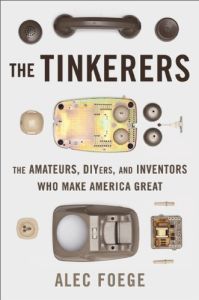Join getAbstract to access the summary!

Join getAbstract to access the summary!
Alec Foege
The Tinkerers
The Amateurs, DIYers, and Inventors Who Make America Great
Basic Books, 2013
What's inside?
Has America lost its creative edge, or is it on the verge of a new golden age of innovation?
Recommendation
This light reading from journalist Alec Foege is enjoyable if you start with the right expectations: it is not intended to be an in-depth exposition on innovation. Instead, it is an entertaining account of past and present innovators – some famous and others less so – but all equipped with a common urge to take things apart, mix them up and create something new. Despite the assets of this enjoyable book, Foege stumbles in two ways: His suggestion that America may or may not be facing a national crisis in creativity doesn’t come together cohesively enough and his paradoxical assertion that American people are innately more creative than other people would be maddening if it weren’t pretty easy to dismiss. Nevertheless, Foege’s random but interesting stories offer valuable insights into ways that schools, organizations and government agencies can encourage, support and accelerate innovation in education, commerce and public affairs. getAbstract suggests this accessible, sometimes even fun, book to business leaders, parents, educators and policy makers.
Summary
About the Author
Journalist Alec Foege founded Brookside Research LLC. He has written four books, including Right of the Dial: The Rise of Clear Channel and the Fall of Commercial Radio.

















Comment on this summary